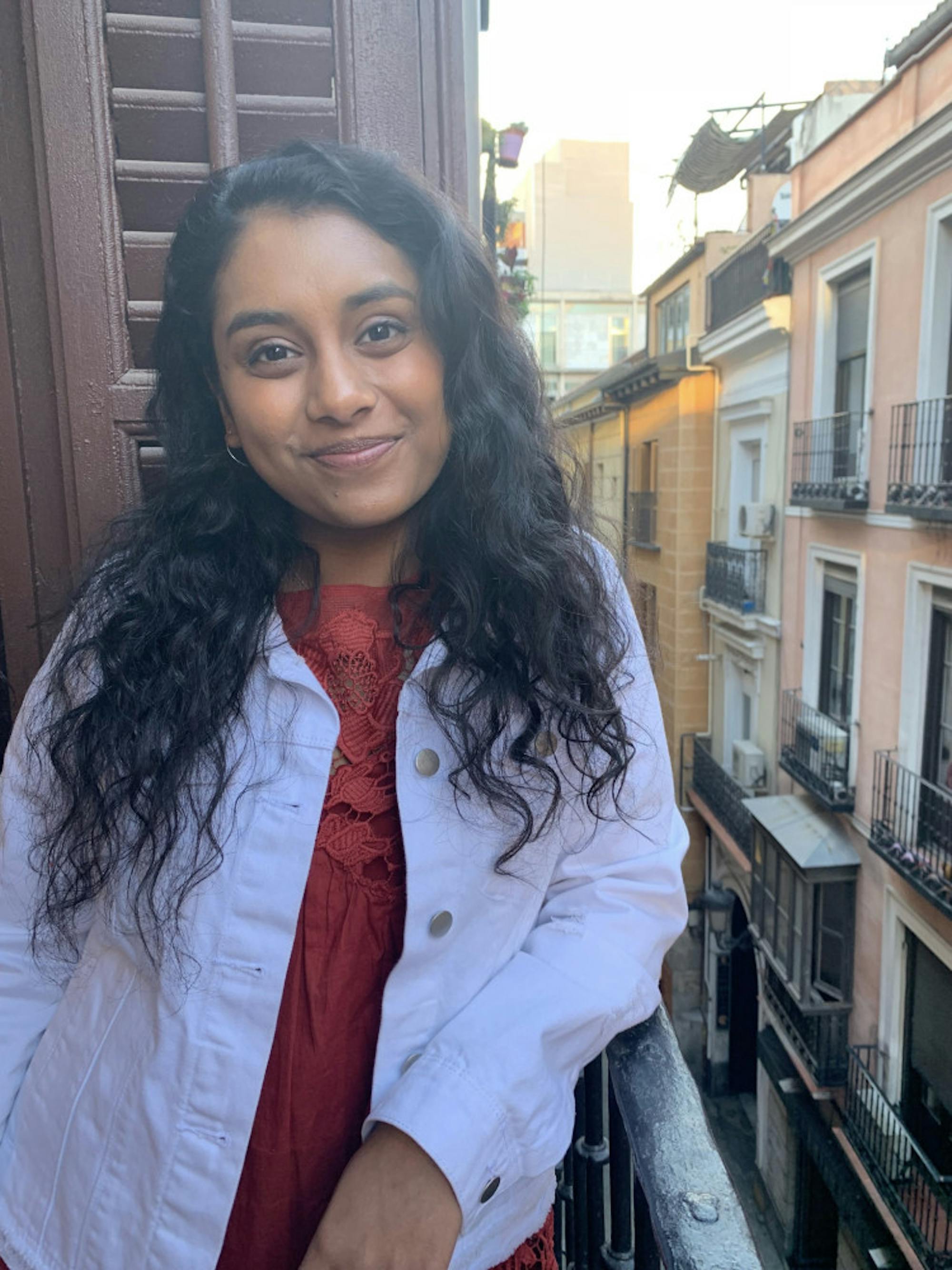Content warning: This article discusses sexual assault.
Editor’s note: The Daily’s editorial department acknowledges that this article is premised on a conflict of interest. This article is a special feature for Daily Week 2021 that does not represent the Daily’s standard journalistic practices.
Deeksha Bathini, who said she’d always had an interest in journalism, was eager to join the Daily her first semester at Tufts.
“I was interested in like government and politics … I wanted to be more civically engaged, and I knew that journalism was a way to do that,” Bathini, a senior, said. “And I really liked writing as well, so those two pieces sort of fit together perfectly.”
Bathini at first joined the Opinion section because she wanted not just to report but to synthesize her thoughts into structured arguments.
She quickly found that she enjoyed writing for Opinion as an editorialist, and that the topics she covered influenced other areas of her life. One of Bathini’s favorite pieces involved her coverage of the first-year experience at Tufts. Writing this article was actually partially what inspired her to become a resident assistant.
“I became an RA my sophomore year … it was just another way for me to be a mentor to incoming students,” she said. "It was really awesome to be an editorialist because I think it really allowed me to learn a lot about Tufts … and gave me the context to contextualize a lot of different problems [first-years] might have.”
Bathini also appreciated Opinion’s focus on issues affecting the Tufts community. Since her sociology courses covered large-scale matters, such as national politics, it was refreshing to have the opportunity to think deeply about more local questions such as controversies surrounding the Confucius Institute at Tufts or community building for first-years.
Sometimes, however, there would be overlap between what was happening on a national scale and how it affected the Tufts community. Bathini recalled that during her semester as executive opinion editor, several sexual assault survivors at Tufts came forward to speak about their experiences in the wake of the Brett Kavanaugh hearings. Following this, the Opinion section released anissue that discussed sexual assault at Tufts. It published the stories of two survivors.
“I think that was probably one of the most important things I did in the role [of executive opinion editor],” Bathini said. “And it gave me a fresh perspective into how important journalism is because it really does give people a platform to share their story.”
In the process of editing all of the Opinion section's content, Bathini, who was previously an editorialist, became more familiar with Opinion’s columns and op-eds. She recalled feeling as though she was editing nonstop throughout the semester, but overall, she found the experience of being executive opinion editor to be rewarding.
“[I was] a little bit thrown on the deep end, but in a good way, where it really exposed me to a lot of different voices,” Bathini said.
In the process of editing the section’s columns, Bathini often had to do research on very specific topics she wouldn’t have otherwise learned about. The op-eds also exposed her to views she couldn’t always relate to, which, for her, was an important experience.
“Everyone has such different life experiences, and they come from such different backgrounds, but you can always find commonality between people,” Bathini said. “I think working with the Opinion section really showed me that even if we're all so different, and we all … have different socializations and come from different places, we can always find something to connect with.”
Inspired by the specific expertise of the columnists she worked with, Bathini went on to write two columns of her own for the Daily. She tapped into her knowledge as a community health major to write “America is Dying,” which explored often-overlooked public health crises in the United States and “Looking for Life, Destroying Life,” which, each week, centered on a global health issue or lesser known disease.
“My favorite thing I did for the Daily was writing my two columns,” Bathini said. “There's so many different topics in public health, and it was almost like writing those two columns was a way for me to sort of like create my own class or my own public health course.”
The title "Looking for Life, Destroying Life" is inspired by the Haitian proverb quoted in "Mountains Beyond Mountains" (2003), the biography of doctor and anthropologist Paul Farmer, who has worked extensively to improve access to high-quality health care in the international community. Bathini concluded her column with an article aboutFarmer, whose office actually reached out to Bathini following the article's publication. Farmer was not the only one who reached out.
"That was really cool seeing the reach … my column [had] … I remember like different … organizations trying to fight the opioid epidemic reached out to me, different organizations who did work with female genital mutilation, which I wrote about in my column, reached out to me," Bathini said.
During her career in the Opinion section, Bathini had the opportunity to both teach, through her columns, and learn. In fact, Bathini said one of the most important things she learned at the Daily was to admit when you don't know something.
"The biggest takeaway I had was to be able to say, 'I don't know,'" Bathini said. "Definitely the skill of saying, 'I don't know' is more important than we let on."






